GLAAD’s Sarah Kate Ellis on Hollywood, the Oscars, and fighting for our rights in the era of Trump
GLAAD holds the line for the LGBTQ community on many diverse fronts as an agency of cultural change

As they say in sports, the best offense is a good defense, and for nearly 35 years, GLAAD, formerly known as the Gay & Lesbian Alliance Against Defamation, has maintained a vigorous line of defense on behalf of the LGBTQ community.
Agile enough to act as media watchdog, a progressive policy advocate, a crucial education and networking resource, or, simply, as moral support, GLAAD works to cover the community’s back, while pushing forward.
Known in previous years more for the organization’s glitzy annual GLAAD Media Awards, and chummy relationship with A-list celebrities, GLAAD, under the stewardship of current president and CEO Sarah Kate Ellis, seems to have pivoted towards balancing Hollywood caché with the pragmatic duties of being what Ellis calls a “culture change agency.” Whether responding to a rise in teen bullying with an anti-bullying movement called Spirit Day, or distributing the GLAAD Media Reference Guide to help define inclusive and respectful language for writing and reporting on LGBTQ issues, GLAAD champions initiatives on the ground that genuinely impact the crusade for fair representation and treatment of LGBTQ people.
And, of course, with progress comes pushback from those who oppose equal rights and seek to legislate or adjudicate their intolerance of the LGBTQ community. During our interview, Ellis, who recently marked her fifth anniversary as the organization’s leader, referred more than once to the fight for hearts and minds, not just rights.
“Ever since the election of 2016, we’ve seen the LGBTQ community being attacked on a daily basis,” says Ellis. “We’ve moved from what was an offense to now a defense in the past two years. Here at GLAAD, once this administration was elected, within days, we started up our rapid response team that we had had years ago, and we didn’t need it during the Obama years. We have been tracking the attacks from this current administration against the LGBTQ community. We’re at 94. It’s called the Trump Accountability Project. It’s on our website, glaad.org. In that, you can see starting with day one of this administration being sworn in, and ever since, a daily barrage on the LGBTQ community.”
That barrage perhaps has led to an increase in violence and acts of abuse or intolerance against members of the community, as noted in GLAAD’s Accelerating Acceptance research study. Armed with data to reinforce the case for change, GLAAD has stood with victims, and spoken up for them.
Recently, the organization had added its voice to the overwhelming support for Empire actor Jussie Smollett in the weeks since he reported being the victim of a brutal, anti-gay attack on the streets of Chicago. As that extraordinary case, roiled by speculation, misinformation, and conflicting accounts, continues to cast doubt on details of Smollett’s initial story, Ellis remains steadfast that GLAAD will continue to be a voice for victims. “There’s no question that racism, homophobia, and hate violence exist today and urgently need action taken against them,” says Ellis.
“While the world waits to learn what happened in the Jussie Smollett case, we need to make sure that those very real issues and threats are not forgotten.”
[Editor’s Note: Jussie Smollett has since been arrested by Chicago Police and accused of staging the attack.]

METRO WEEKLY: What do you consider to be the main function of GLAAD right now, and has that changed in the five years of your tenure?
SARAH KATE ELLIS: It absolutely has changed in the five years that I’ve been here. When I started my post at GLAAD, we were in a time where we saw great acceleration for the LGBTQ community, both in policy and in culture change work. Now we are seeing a rollback and our rights threatened and acceptance rolling back as well. The main focus of GLAAD right now is trying to hold the line on the rollback, both from losing hearts and minds, and also from a rights and policy perspective.
MW: Like everything else in the world today, GLAAD seems more politically oriented than, say, ten years ago when it appeared a little more Hollywood-focused. How does GLAAD’s role in dealing with Hollywood differ from dealing with Washington?
ELLIS: I would say that GLAAD is a culture change agency. That’s our job. It’s to see where the culture is and then get in there and accelerate acceptance for the LGBTQ community. Right now, whenever you turn on a television and put on the news, politics is at the center of that. It’s not that we’ve become more political, if you will, but what we have done is we have taken what is the current culture and climate right now and gone in there to make change.
Our work with Hollywood, though, is absolutely more important than ever because they actually are the people telling stories. They are humanizing LGBTQ people. We’re working very closely with them to do that. We do annual reports that are called the Studio Responsibility Index. One is on the major film studios, and one is on the network and streaming content providers. Both of these, we measure the amount of LGBT content that they’re producing and also the quality of it. You can see that there has been a great uptick in that, both the quality and the quantity. There’s still more to be done there, a lot more to be done there, but we still work very closely with Hollywood and now more than ever.
GLAAD now works on multiple fronts at multiple times in order to continue to accelerate acceptance for the LGBTQ community. Most recently, I just got back from the World Economic Forum, which was hosted in Davos, Switzerland. The reason that we go there is because two years ago, we realized very quickly that there is a lack of moral leadership in this country, that we are not a country on the forefront of human rights any longer. We needed to go to the top CEOs in the top companies globally, multinational companies, to put pressure on them to take this leadership position, to fill the void that has been created by this administration. Our job at GLAAD is to go to these centers of culture change and power and have the conversation to move people forward to accelerate acceptance.
MW: The organization has branched out overseas — you now have GLAAD UK in London. What’s been the result of operating from Europe as a base for your international mission?
ELLIS: About two years ago, we started the GLAAD Media Institute. It takes a lot of our best practices, codifies it, builds curriculum around it so that we can train more people and give more people the tools for culture change. Our GLAAD Media Institute does trainings around the globe, and it is everybody from the C-suite of major Fortune 500 companies to front-line activists who are trying to decriminalize and move marriage equality forward. That’s how we do our global work.

MW: In this age of intersectionality, how does GLAAD work with other advocacy groups like Time’s Up or HRC, for instance?
ELLIS: We are very aligned with Time’s Up. I’m not sure if you saw our recent story on Bryan Singer, the director in Hollywood. [In light of accusations that Singer either raped or otherwise victimized a number of young men and teenage boys, GLAAD removed Singer’s film Bohemian Rhapsody from contention for a GLAAD Media Award.] We came out on Bryan Singer, after the Atlantic article came out, with Time’s Up. We work very intersectionally. It’s always been core to who we are as an organization. We also worked very closely recently with Color of Change on a video that we put together in support of justice and all that. We are always working with brother, sister or sibling organizations and have had leaders of Black Lives Matter on our stage to talk about their experience, talk about the work that they’re doing.
We have always, under my leadership, worked intersectionally. We can’t do our work without working with each other. The LGBTQ community represents people of color, people with disabilities, obviously women, and all marginalized communities. We take that really to heart here, and it is part of all of the work that we do.
MW: GLAAD’s statement about Bryan Singer and the rescinded film nomination made a point that other films that involve Bryan Singer “now or in the future” should take note of potential backlash. Is there any danger in casting that outrage ahead? What if, somehow in the future, Singer were exonerated?
ELLIS: I would love to see this not be true. This has been a story that’s been reported for years. We have been in touch with victims who we’ve spoken directly with. I think that in this time, in this day and age, we have to hold people accountable for their actions, and it’s been widely reported at this point. I’m not a judge and jury, and that needs to be seen, but I think that it’s important that we’re out there on this and especially protecting young boys in Hollywood.
MW: Keeping with the awards, talking about the Stephen Kolzak Award, which is presented to a media professional who has “made a significant difference in promoting LGBTQ acceptance.” Since the announcement that this year’s recipient will be Sean Hayes, I’ve had conversations with people who would argue that Hayes’ Will & Grace character, Jack McFarland, promoted a cartoon stereotype of gayness. How do you respond to that?
ELLIS: I responded to this, too, in the New York Times when Will & Grace was rebooted. I think there are all different versions of LGBTQ people. There are [Jack McFarland’s] in the world. We are in a position now where we have a good amount of representation that we can celebrate all the colors of the rainbow in the LGBTQ community. I think that there are a lot of hearts and minds that Will & Grace has changed. There were a lot of moms, grandmas, dads, grandfathers out there who were able to understand their son a little bit better because of the character of Jack McFarland. I don’t think that we have to segment it.

MW: This year marks a pretty important milestone for the Media Awards.
ELLIS: This year is our 30th anniversary of the GLAAD Media Awards, if you can believe that. Just to give a little bit of history on that, 30 years ago when the GLAAD Media Awards started, it was held in a conference room, and it was very small. It was less than a hundred people, if it hit a hundred, and we would rotate hosts between Judith Light and Phil Donahue because those were the only two people who would step in the room and be supportive of our community. We’ve come a long way.
MW: Looking at the big media picture, it seems that people don’t talk enough about giant mergers like Disney swallowing Lucasfilm, Marvel, and now Fox. Should people be concerned about the steady encroachment of these behemoths gaining control of the media world?
ELLIS: Yeah, that’s a great question and it’s something that we do talk about. It’s also not dissimilar from losing small local newspapers or how we’ve lost more people in journalism over the past 20 years than in the coal mining business. We have a challenge with media, both entertainment and news, and journalism — merger and acquisitions and, quite frankly, some of it just going away. I think especially in a time where our free press is being challenged like we’ve never seen before within our own country, it’s a really important topic. It’s a time to be talking about the distribution of content, the mergers that we’re seeing. I think that there’s another thing that is happening, which is just as fascinating and interesting, which is more people are in control of their own platforms than ever before with the rise of social media. People are able to tell their stories like they’ve never been able to tell before. I think that is a bright light of some of this, but it is absolutely something that we talk about at GLAAD and that we focus on. When Sinclair was looking at a merger and taking over a lot of local newspapers, that was something that we were very vocal in and around because we saw the dangers there as well.
MW: What does GLAAD do to advocate for access to media? Because everybody is not experiencing the representation renaissance if they can’t get to it.
ELLIS: At GLAAD, we get a lot of calls, as you can imagine, from people who want to tell their stories. Last year, we gave out a completion grant for a film called “TransMilitary” that we helped executive produce. That actually will be shown in D.C. on April 3rd [at the U.S. Capitol]. We are trying to step in as best we can and continue building that muscle at GLAAD so that we are helping to get content created and more exposure to the content.
MW: Do you see an end to net neutrality as presenting a barrier to accessing media, or do you see that policy shifting at all?
ELLIS: We’ve been very vocal on net neutrality. I think that we see this as a potential barrier, and we will continue to be very vocal on this topic. This really can get to a very slippery slope. If we see the stripping away of net neutrality, it’s going to disproportionately affect marginalized communities.
MW: With thriving representation in media spaces, it seems that LGBTQ people are finding their physical spaces more threatened, and their actual physical bodies threatened. What actions is GLAAD involved in to also protect our physical spaces?
ELLIS: I’m going to take this a little bit. We do a research study called Accelerating Acceptance. Annually, we do it with Harris Poll. We measure how people really feel about LGBTQ people. Over my first four years, we saw it either stay the same or grow, accepted, grow a little bit more. Last year when we did this, we saw all seven indicators roll back, three of them statistically significantly. You couple that with the FBI reporting that they’re seeing a sharp rise in hate crimes against the LGBTQ community. It’s 16 to 17%. Our job at GLAAD is to educate and inform. That is why the content that gets out there is so important, and that’s why we take our relationship with Hollywood to talk about these issues. When I find this out or when we do our study, I go to Hollywood. I have meetings with the studio executives, the network executives and talk to them about what’s threatening our community. We’re seeing more violence against people of color. We’re seeing less acceptance of people of color. We’re seeing more violence against the LGBTQ community. We’re seeing less acceptance. The culture in this country has changed dramatically over the past two years. Our job is to humanize people by making sure that their stories are being told.
MW: On an anecdotal level, it’s obvious that there’s more violence directed towards marginalized communities in general. But as some ray of hope, you also can point towards the successes of Kyrsten Sinema, Danica Roem, or South Bend Mayor Pete Buttigieg, with the question are we ready for a gay president? Since we’re talking about hearts and minds, what do you think? Are we ready?
ELLIS: I don’t think anything works in a vacuum. I think that the 2018 midterm election was a sharp cry from pro-equality candidates and people to say that we don’t want to see our work rolled back. We actually think that there’s more work to do. I do think that part of the resistance is showing itself up. It doesn’t mean that the daily lives of everyday Americans aren’t more unsafe, aren’t less accepting, but I think that what it is doing is provoking an entire generation to step up like they haven’t stepped up before. There was complacency. I actually have research on where the complacency was prior to the 2016 election. I think that you have a lot of forces. I do believe that, in the end of all of this, and when we do get, hopefully sooner than later, an administration that is pro-equality, that we will make amazing and great strides. Right now, we’re in a position where we’re fighting for our lives and our visibility and our safety.

MW: Also, we see people like Troye Sivan, Hayley Kiyoko succeeding in their spaces as gay out media artists, but recently Sivan wondered in an interview if he might be reaching an even larger audience if he weren’t so out and proud about being gay. Do you feel there’s truth to that?
ELLIS: I think it’s complicated. We still don’t have major, major Hollywood stars who are out. I think that is telling in and of itself, and that’s why acceptance rollback is alarming and heartbreaking because we still don’t see a pro athlete who is at the top of their game out, but we know they exist. There is a lot of work to be done, and there is a lot of headway that we still have to make both on the acceptance front and on the policy front.
MW: Would you agree that this was a good year for LGBTQ representation at the Academy Awards?
ELLIS: I would. I think I’m going this year. One of the reasons that I’m going is because of all the representation that is at the Oscars. I think it’s an important moment to reflect on how we got here, but also to make sure that all the powers that be are keeping that pace up.
MW: Are there any films or performers you’re particularly rooting for?
ELLIS: I love The Favourite. It’s such a fabulous film. It’s so well done. There’s definitely The Favourite that I’m rooting for, and Black Panther. I went and saw that twice. I thought that was phenomenal.
MW: With The Favourite, I read an interview with an expert on British royal history who was questioning the lesbian content in the movie by saying that, from what we know of Queen Anne, she “was so prim and so pious and she made such a show of her conservatism that she never would have had a relationship with a woman.” Which, hearing that, I’m thinking, well, this woman doesn’t understand how homophobia works, or being in the closet.
ELLIS: Thank you! I’m so glad. Thank you.
MW: The question is, do you feel it’s part of your mission also to make sure that people understand what oppression and homophobia/transphobia look like?
ELLIS: Oh, absolutely. Unless we unravel homophobia, transphobia, and people have an awakening to how it’s internalized in them, we deal with homophobia in our own community. It’s so internalized. I think that growing up feeling shameful about yourself and being taught that you should feel shameful about yourself has lasting and deep ramifications. I think that our non-LGBTQ allies also need awareness around that and what privilege they bring to the conversation. Education about homophobia, transphobia is very, very important. We do that through stories because just telling people might not do it, but showing people can really help unlock it.
MW: You’ve just passed your fifth anniversary at GLAAD. First of all, congratulations.
ELLIS: Thank you.
MW: Looking back, what do you consider the organization’s hallmark achievements of the past five years? And for you personally, what are you really proud of?
ELLIS: I think from an organizational standpoint, it is setting up the GLAAD Media Institute, creating the Accelerating Acceptance Index, restarting our news and rapid response team. There’s a lot. I think that’s plenty.
Personally, I think our relationship with Hollywood, we are on speed-dial in most cases from Hollywood because we are a partner on so much of the work that comes out of Hollywood. I think that we’ve moved from being in a time of a watchdog — we’ll always be a watchdog, we’re glad we’ll always be a watchdog — but we have so many people fighting to do the right thing. Oftentimes, they just need the consultation and education to do the right thing. I’m really proud of that, our relationship with Hollywood. I’m also really proud of our relationship with CEOs and our presence at Davos. One of the things about the World Economic Forum, is that they call it, I don’t know if it’s self-proclaimed, but “the masterminds of the world.” These are all the political leaders and the CEOs, the corporate leaders who decide what’s important in the world. In two short years, GLAAD has gone in there and made sure that LGBTQ is important. That’s no small feat, so I’m really proud of that as well.
MW: On a personal level, how much do you and your family, or you and your wife, feel represented in the media that you consume, or in the options that are on the table for you?
ELLIS: In the past five years, I’ve actually seen it pump up. I was just watching a show the other night with my daughter, and it was a Disney show, and the young woman on the show said, “Well, my moms don’t feel that way.” I jumped from my seat.
I’m glad we started the Family and Kids category at the GLAAD Media Awards. Last year, we announced and launched that because we’ve worked with a group of advisors in Hollywood who do kid and family programming, and there was actually enough content to have a category. One of the things we struggled with in the past was actually having enough people to be nominated or choose to be nominated. We’re seeing it more and more. This year also, we launched a partnership with Bonnier Publishing’s Little Bee Books that we are producing children’s books. I hear it more often than not, a lot of people don’t know that we’re involved in it, and they’ll say to me, “I just got the Prince & Knight,” because these are children’s books and it’s the representation of families like us, like ours. We have a few of those projects in the works and we’re really excited to be doing those partnerships to getting that content out there. At Barnes & Noble, they’re going to have endcaps that have these books in them, in the family section, in the kids section. We’re really excited about that.
MW: As GLAAD continues to advocate for acceptance and change, what’s the next great battle that you foresee on the horizon?
ELLIS: I think for us at GLAAD, it is really going to be in the digital space. We’re making sure that there’s access to information, and it’s accurate information. There are so many complexities with the social media companies. We sit on councils on Facebook, on Twitter and have these conversations about how to make sure that LGBTQ content isn’t restricted. There are so many complex questions, that I think that is one of the biggest places that we’re going to have to be doing a lot of work over the next few years.
The 30th Annual GLAAD Media Awards in Los Angeles will be handed out March 28 at the Beverly Hilton. Tickets are $500 to $55,000. The 30th Annual GLAAD Media Awards in New York will be handed out May 4 at the New York Hilton Midtown in Manhattan. Tickets are $500 to $45,000. For more information on the awards and GLAAD in general, visit www.glaad.org.
Support Metro Weekly’s Journalism
These are challenging times for news organizations. And yet it’s crucial we stay active and provide vital resources and information to both our local readers and the world. So won’t you please take a moment and consider supporting Metro Weekly with a membership? For as little as $5 a month, you can help ensure Metro Weekly magazine and MetroWeekly.com remain free, viable resources as we provide the best, most diverse, culturally-resonant LGBTQ coverage in both the D.C. region and around the world. Memberships come with exclusive perks and discounts, your own personal digital delivery of each week’s magazine (and an archive), access to our Member's Lounge when it launches this fall, and exclusive members-only items like Metro Weekly Membership Mugs and Tote Bags! Check out all our membership levels here and please join us today!








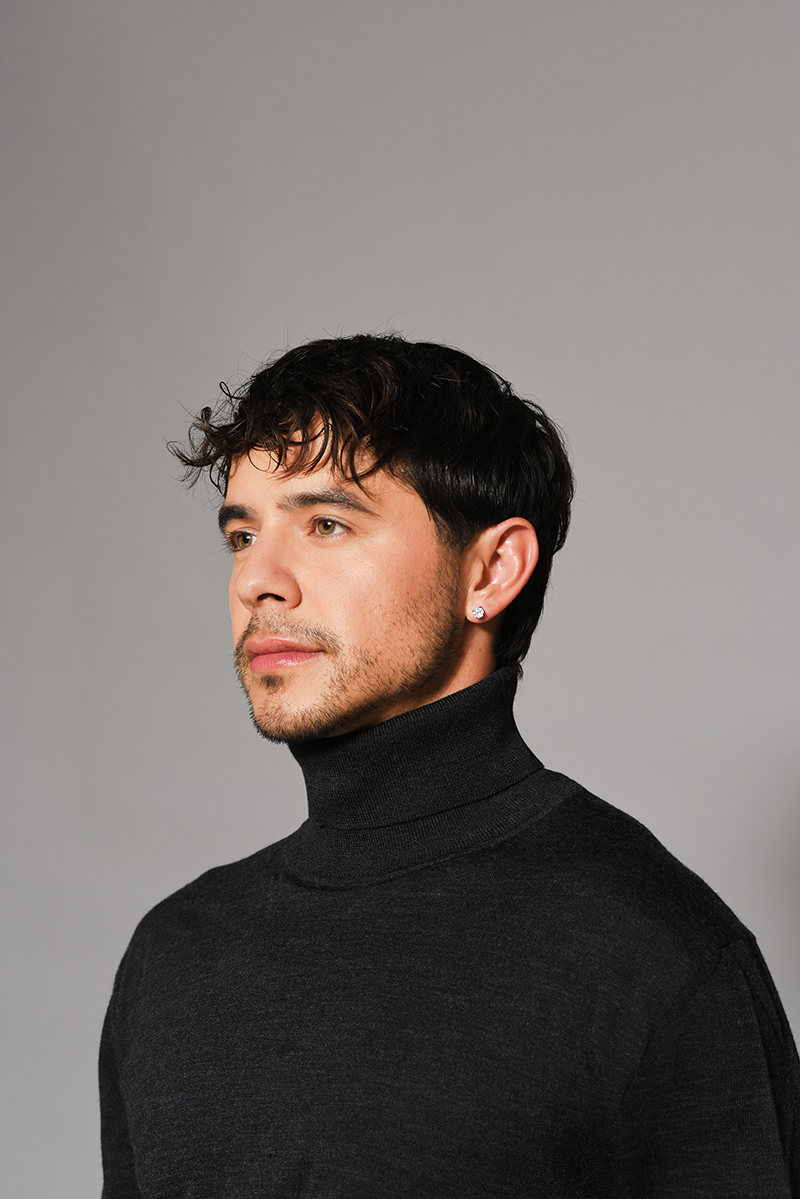
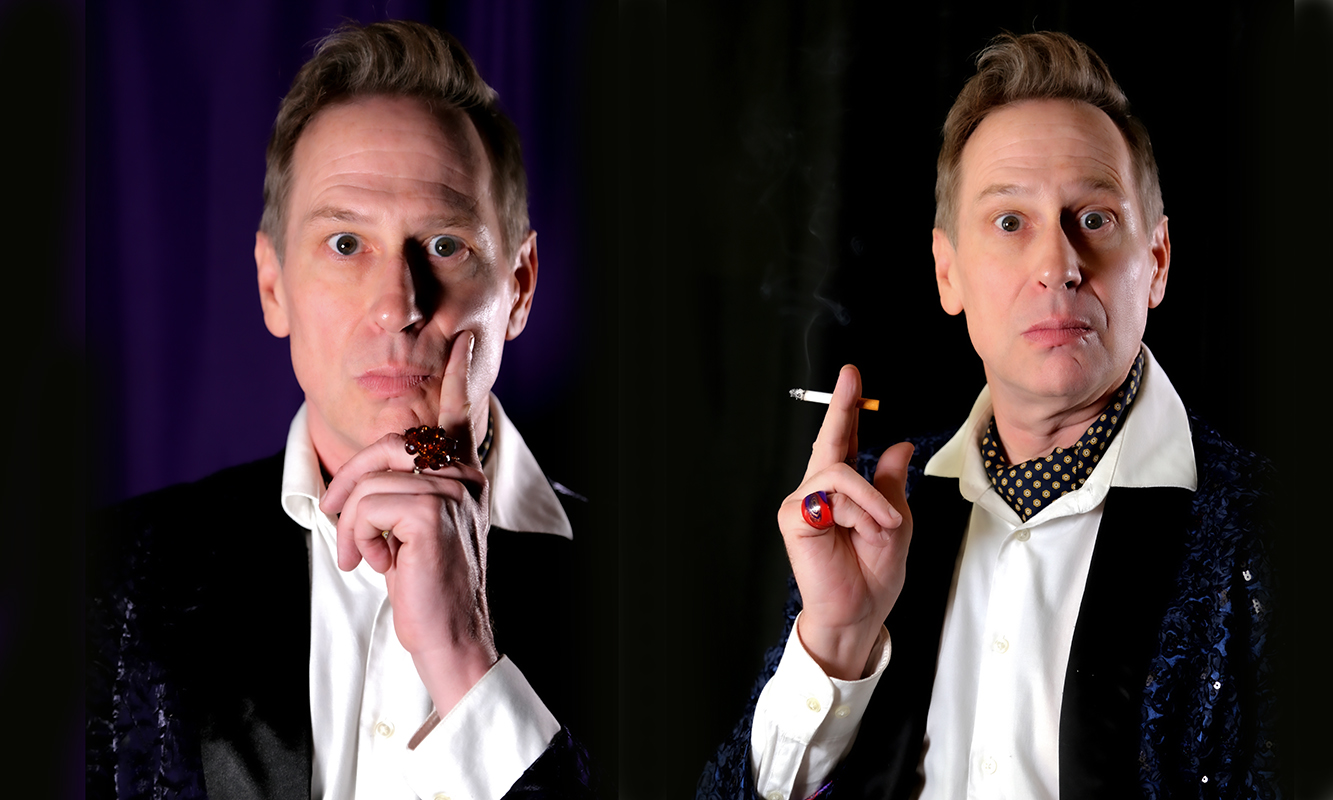














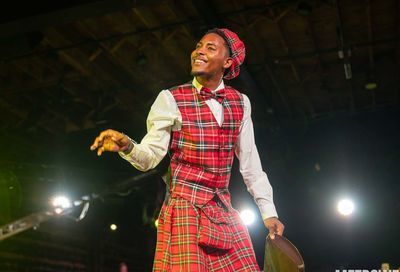
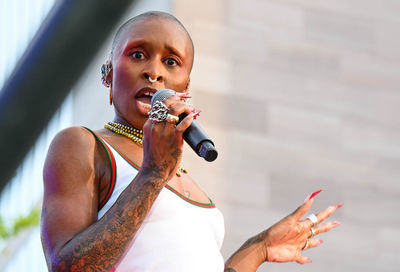
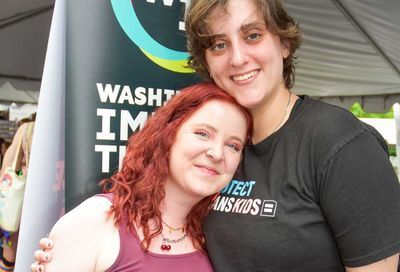
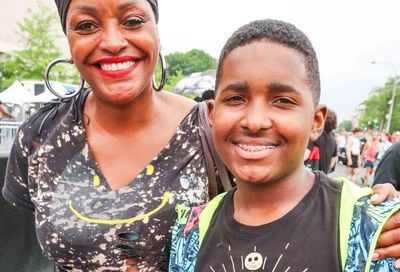
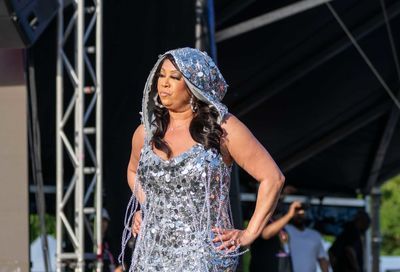
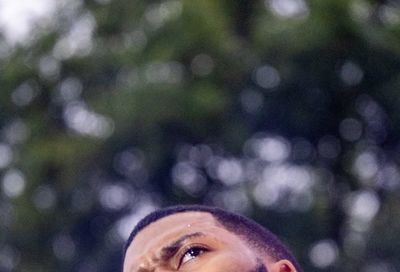
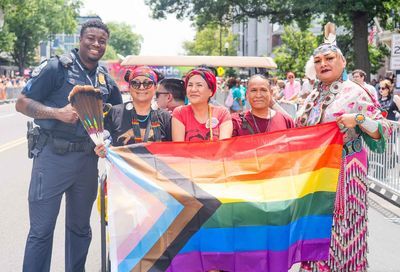
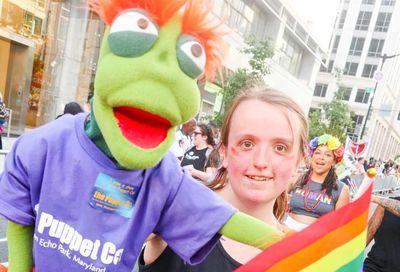
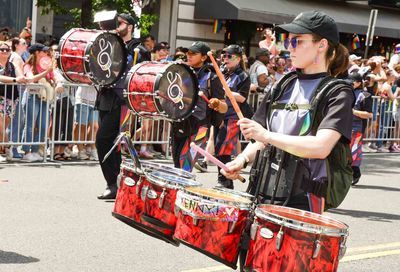
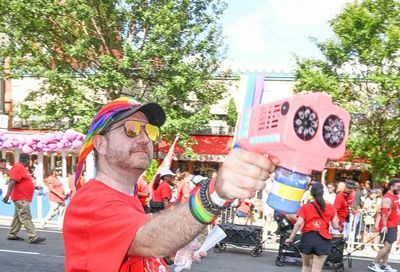
You must be logged in to post a comment.